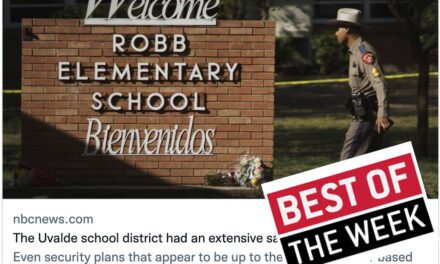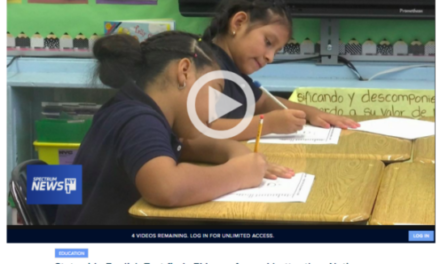#CoveringCOVID19, a daily update from The Grade to help education journalists cover the COVID-19 crisis.
THE TOP FIVE
Five great education stories about how schools are responding to the COVID-19 crisis:





ICYMI: Friday’s newsletter features tons of great stories, media commentary, and newsroom comings & goings. Check it out here and sign up today!
WHAT IT’S LIKE BEING FURLOUGHED (OR WORSE)
Scads of education reporters are experiencing furloughs, with more likely to come.
In a new first-person post published earlier today, an anonymous education reporter reflects on what it’s like being taken away from work during a massive news event: “I pray that the ‘new normal’ doesn’t become permanent.”
In addition to furloughs, a few reporters have been moved to other beats (like health) or asked to do double duty covering education and other stories.
For example, the Washington Post’s Moriah Balingit is somehow managing to produce education bylines while assigned to cover the pandemic from Michigan. “Tell me what I should see, who I should meet (from a social distance, of course!) and the stories I should tell,” tweeted Balingit.
Meanwhile, at least two education reporters have been laid off, the most recent being the Austin Statesman’s Aaricka Washington, who tweeted about what happened on Friday.
Sad to say, more furloughs and layoffs seem likely. The Philadelphia Inquirer announced buyout offers a few days ago.
The day’s best new education news stories are shared out every morning via @thegrade_. Then between 4 and 5 PM Eastern, the daily #coveringCOVID19 roundup comes out. You can find it here.
Above: HBO’s new show, Bad Education, premiered last night. It focuses on corruption discovered at a highly regarded Long Island school district and is based on a true story.
TIDBITS




That’s it! See you back here tomorrow. Sign up for the weekly email, Best of the Week, which comes out Fridays around noon Eastern.
ABOUT THE AUTHOR

Alexander Russo
Alexander Russo is founder and editor of The Grade, an award-winning effort to help improve media coverage of education issues. He’s also a Spencer Education Journalism Fellowship winner and a book author. You can reach him at @alexanderrusso.
Visit their website at: https://the-grade.org/


















